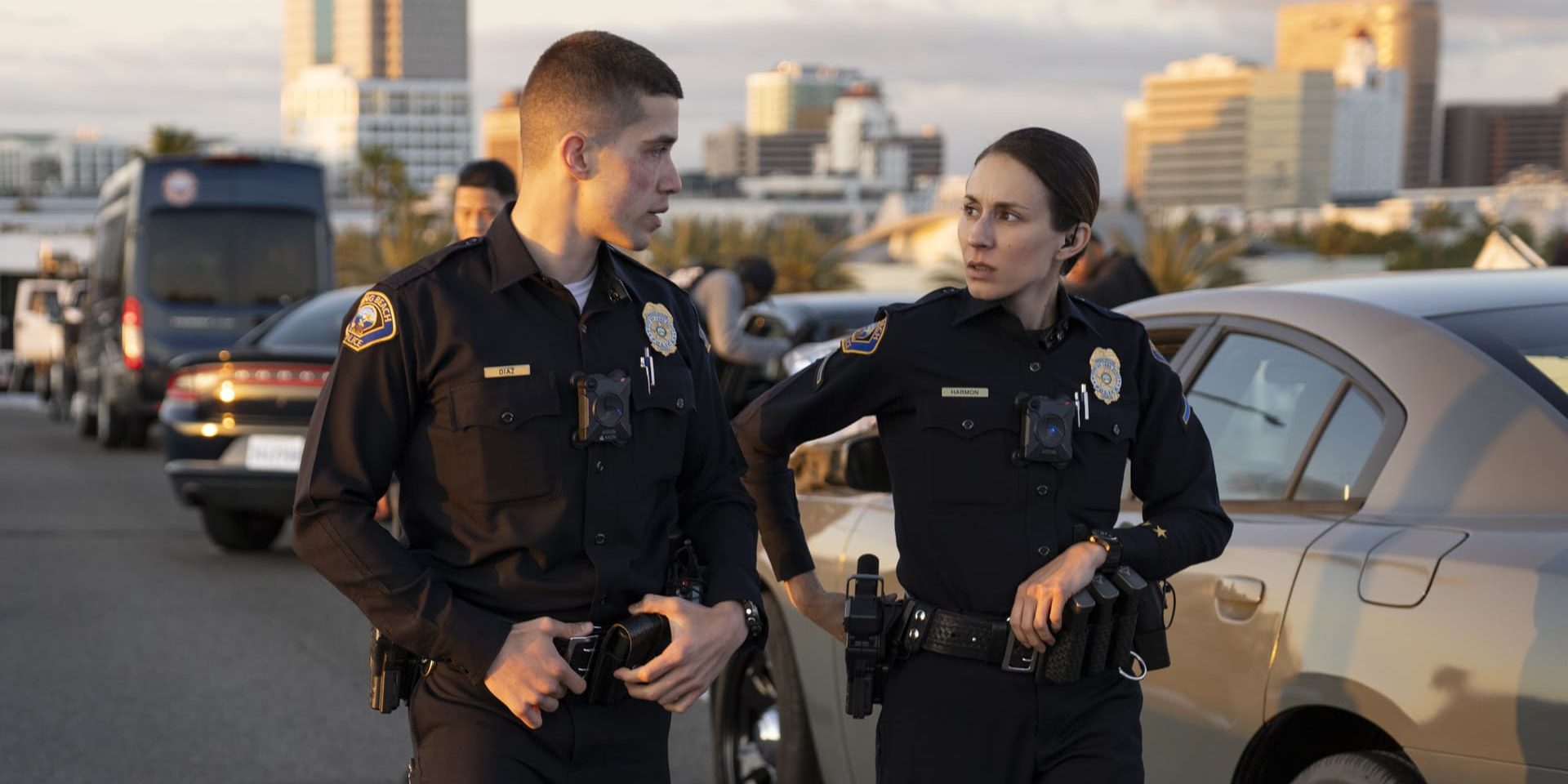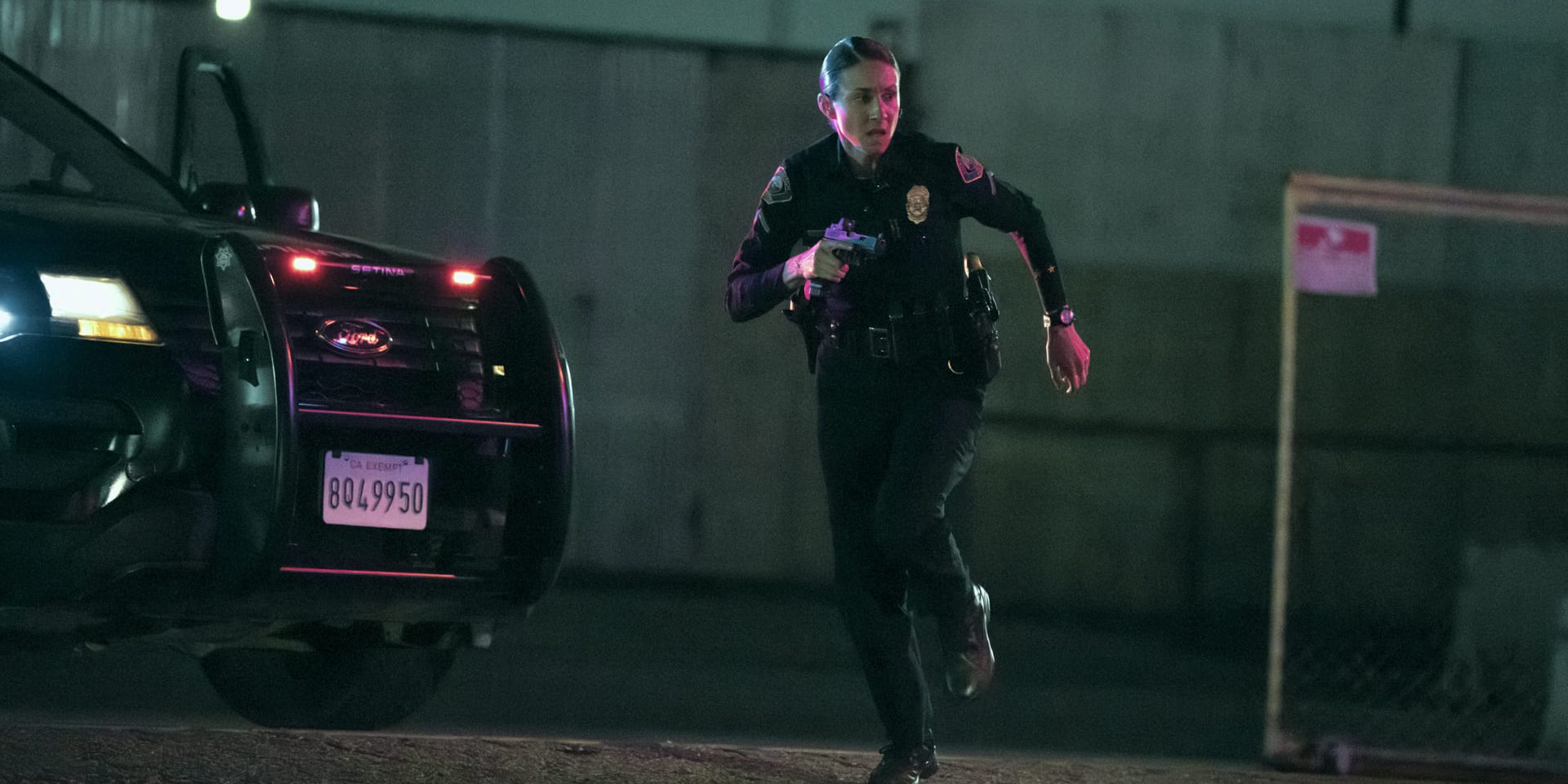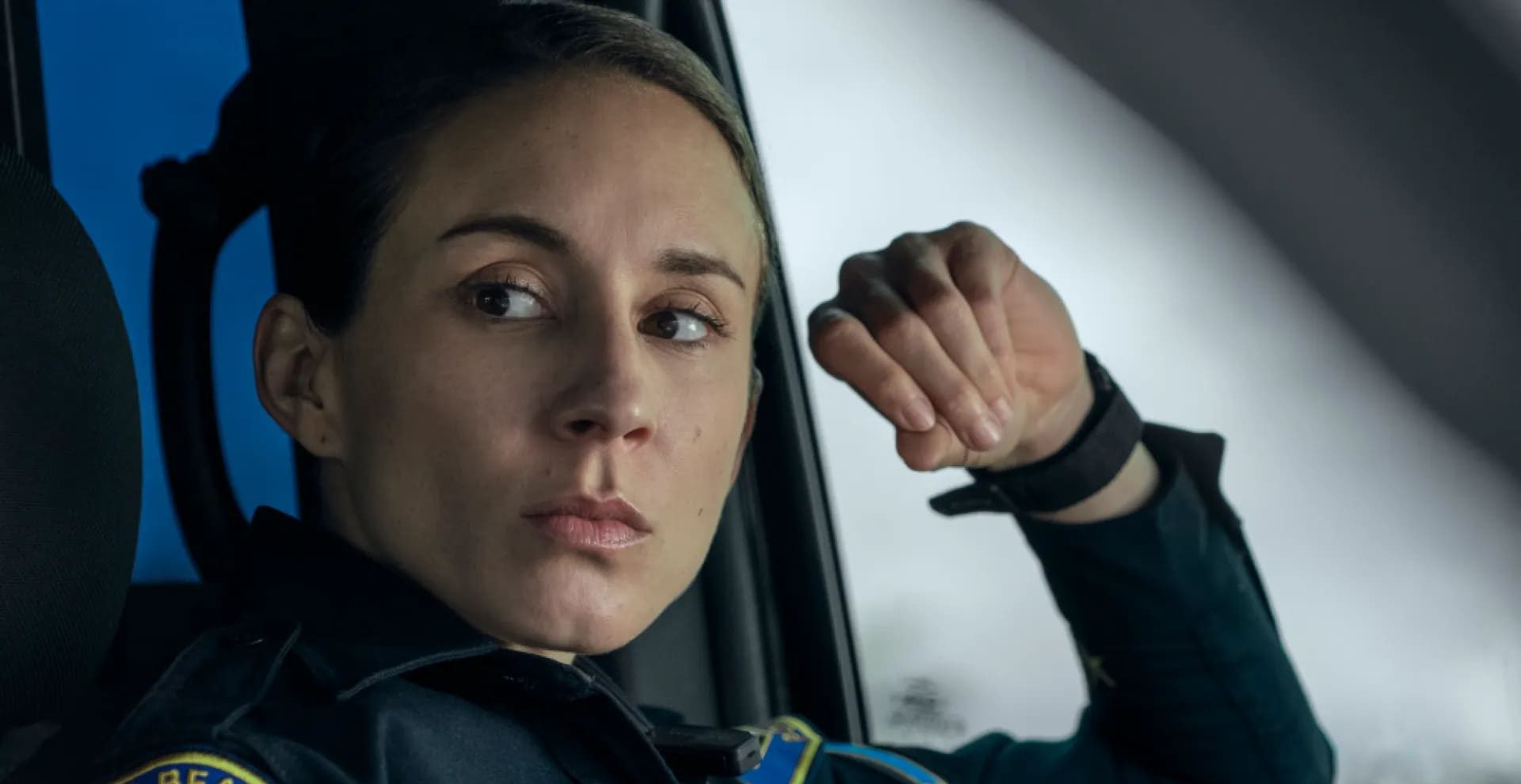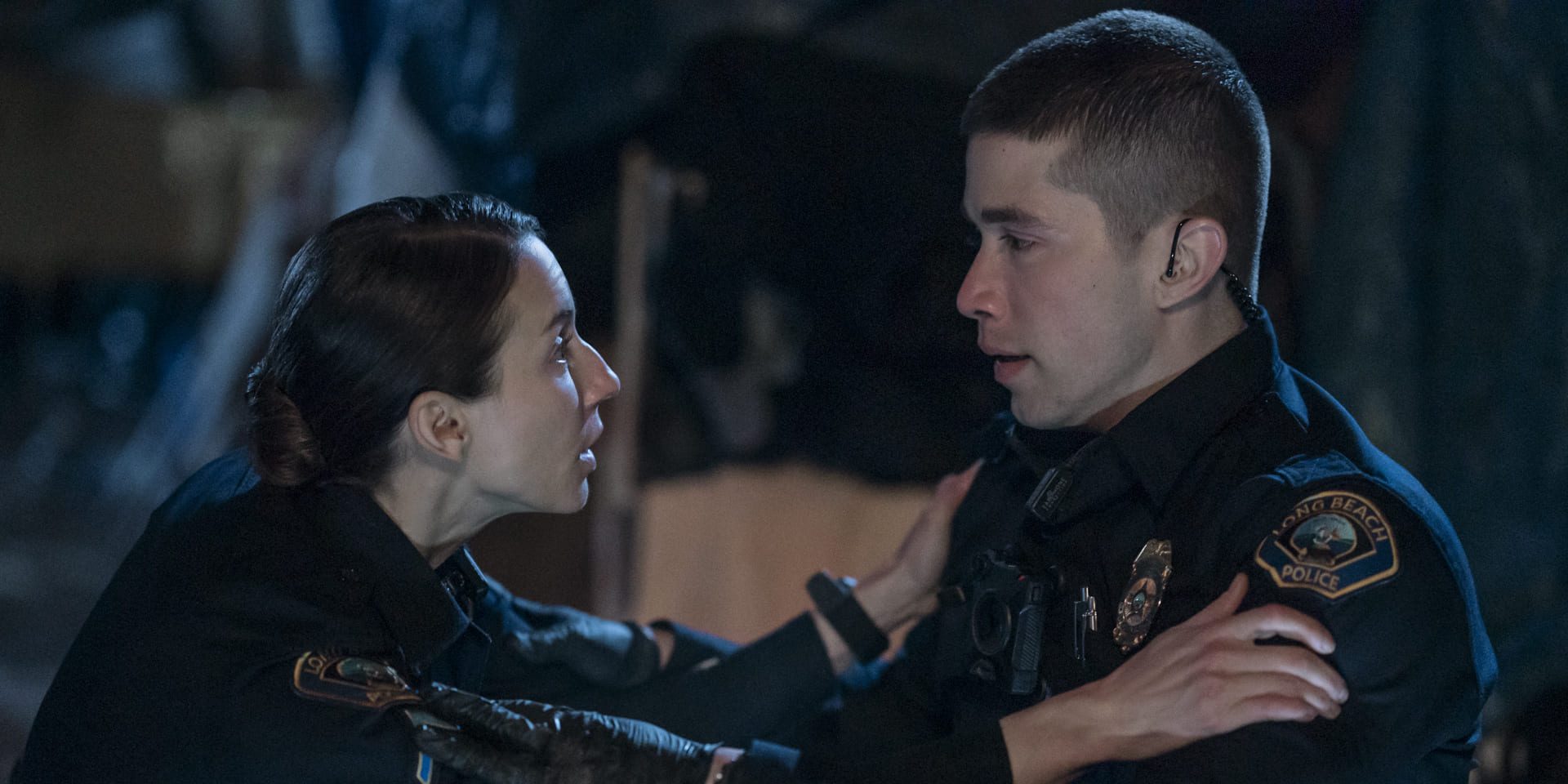Created by Tim Walsh and Elliot Wolf, Prime Video’s ‘On Call‘ tells the story of veteran policewoman and training officer Traci Harmon and her inexperienced partner, Alex Diaz, as they embark on answering a number of dispatch calls in the city of Long Beach, California. After the murder of a cop shakes the foundations of the police department, Harmon and Diaz begin their own investigation, juggling their professional responsibilities with their personal desires for justice. Things get further complicated when the shooters are identified to be members of a local gang known as the East Barrio clique. Subsequently, Harmon and Diaz have to navigate the challenges of their work with the escalating tensions within the city. The police procedural drama series is based on themes of justice, morality, integrity, mentorship, and resilience.
On Call Takes Inspiration From Traditional Procedurals From the Past
‘On Call’ is a fictional story written by Tim Walsh, Elliot Wolf, Molly Manning, Bryan Gracia, Tiffany Bratcher, and John Conley. The show revolves around the day-to-day exploits of the Long Beach Police Department, as seen through the eyes of officers Traci Harmon and Alex Diaz. It dives into the challenges first responders face, especially when heading into dubious situations requiring the utmost diligence. An emphasis is particularly placed on the dispatches answered by Harmon and Diaz, with each offering something different, unique, and taxing. While the show also has an overarching narrative, one involving the murder of a cop on the streets of the city, the story shines when it delves into the nitty-gritty of daily police work. To that end, the creators took cues from old-school police dramas to help provide the necessary inspiration.

“I would not call our show a traditional procedural, but it was inspired by looking at yesteryear to take something that’s old and make it new again,” Wolf said in an interview with TheWrap. Both Wolf and Walsh looked at numerous cop dramas to provide a framework for their own narrative. Walsh described ‘On Call’ as “‘Adam 12’ on meth,” a 1960s police procedural series that aired on NBC. Other cited influences include ‘The Shield,’ John Carpenter’s ‘Assault on Precinct 13,’ the Robert Duvall-starrer ‘Colors,’ and the works of Michael Mann. The numerous shows and films helped provide a distinct base and foundation for the series. However, the creators decided to pare back where necessary to craft something unique, looking to reinvent what came before.
On Call Immerses the Audience Through Found Footage-Style Storytelling
One of the overriding and notable aspects of ‘On Call’ is its adherence to showcasing the action through a combination of body cam, dash cam, and cell phone footage. The use of different camera lenses is a deliberate choice by the show’s creative team, who were intrigued by experimenting where they could to provide a more immersive experience for the viewer. “The show was sold as found footage,” Walsh stated. As much of the narrative unfolds with intensity, the found footage aspects help blur the line between fiction and reality, especially as most people are familiar with body cam and dash cam footage in real-life contexts. Their inclusion directly places the audience at the heart of the drama, making them feel the same anxieties as the characters themselves.

In addition to its found footage direction, the show also dives into the premise within a few minutes. No time is wasted on fleshing out backstories as the stakes are set high soon after the opening. The cold start immediately throws the characters into a difficult situation, providing them with a goal to work towards while also highlighting the dangers of their job. It breeds a sense of trepidation that is palpable and informs every part of the story moving forward. Thus, a combination of clever writing and experimental direction helps ground the series, providing an intricate look into the lives of police officers through their daily tasks. However, ‘On Call’ remains a fictional creation that walks the tightrope between real and scripted, giving rise to a fresh procedural formula.
Traci Harmon is a Fictional Police Officer With No Ties to Reality
Although ‘On Call’ covers the exploits of both Traci Harmon and Alex Diaz, the show’s primary attention lies with the former. Harmon is a fictional character penned by the show’s writers. Right from the start, she becomes a central figure owing to her past relationship with Officer Maria Delgado, who members of the East Barrio clique shoot down. The veteran takes her death hard, mainly because she was Delgado’s trainer. As such, she feels deeply guilty that she didn’t carry out her job as a trainer adequately, which ultimately led to Delgado’s death. When the authorities identify the shooters, Harmon takes matters into her own hands by investigating the matter thoroughly, hoping to arrest the ones responsible for her trainee’s tragic murder.

Elliot Wolf explained that Delgado’s death has a dual impact on the narrative. Firstly, it sets the tone of the series moving forward. Secondly, it allows the viewers to understand Harmon as a character. “It was a great means of getting insight into her and entering her life at a point where she was vulnerable for the audience to get to know her in a way that you wouldn’t otherwise,” Wolf said. Her inner conflict manifests through the recklessness she displays in hunting down Delgado’s murderer, which is uncharacteristic of her usual conduct. She gets emotionally wrapped up in the case, making her veer away from protocols on numerous occasions. Thus, while she may be the lynchpin of the series alongside her partner, Diaz, the police officer is a fictional character with no real-life counterparts.
Read More: On Call Ending, Explained: Why Does Diaz Hand Harmon the “Get Out of Jail Free” Card?


You must be logged in to post a comment.